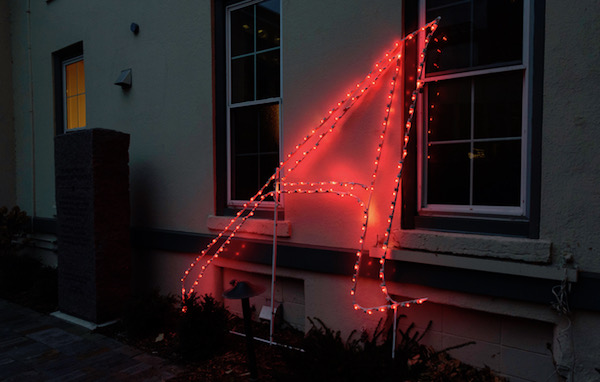
Most U.S. adults approve of the growing secular emphasis on Christmas, a new Pew Research Center survey has found. Differing from their president, more than half of Americans don't care how they are greeted in stores and businesses.
Even though 55 percent of adults consider Christmas as primarily a religious holiday, that still leaves a lot of "happy heathens" among the rest of us. Two-thirds of the U.S. public "either is not bothered by a perceived decline in religion in Christmas or does not believe that the emphasis on the religious elements of Christmas is waning," states Pew. While nine in 10 of those surveyed say they celebrate the holiday, "some of the ways Americans think about and commemorate Christmas appear to be moving in a more secular direction," Pew reported.
It's unfortunate that two-thirds continue to affirm that Christian displays like nativity scenes should be permitted on government property, but the proportion of the American population stating this has declined by 7 percentage points since 2014. "The share of Americans who believe no religious displays should be permitted on government property has grown from 20 percent to 26 percent over the past three years," says Pew. In other words, even if FFRF still has its work cut out when it comes to the December "war against separation of church and state," its efforts to educate and balance religion on governmental property are definitely paying off.
And little by little, Americans are letting go of their Sunday school indoctrination and starting to apply critical reasoning skills to religious claims.
Strikingly, the largest changes regard perceptions about the birth of Jesus. In 2014, 73 percent said they believe Jesus was born to a virgin, compared to 66 percent today, with a similar decline in those who believe "wise men" were guided by a star and brought gifts for baby Jesus. Overall, according to Pew, 57 percent of Americans believe in all four elements of the Christmas story (virgin birth, miraculous star, birth heralded by an angel, and Jesus being laid down in a manger).
It's cause for optimism that the rise of the "Nones" does not entirely explain these declines in credulity, according to Pew: "The new study finds a small but significant decline in the share of Christians [Emphasis in the original] who believe in the Christmas narrative contained in the bible."
In 1822, Thomas Jefferson wrote, "I trust that there is not a young man living in the United States who will not die a Unitarian," and predicted "the present generation will see Unitarianism become the general religion of the United States." Jefferson was laughably optimistic, and it would be Pollyannaish to imagine that even by 2022, Unitarian-like attitudes will be the norm. But the secular trends continue to grow in the United States, which is truly "glad tidings."
In any case, as we all know, the origins of Christmas are essentially pagan, predicated on tomorrow's natural holiday of the Winter Solstice. We in the Northern Hemisphere can rejoice in the fact that soon the days will gradually lengthen, and a bright new year will commence, full of promise for the continuing embrace of secular life and humanism.